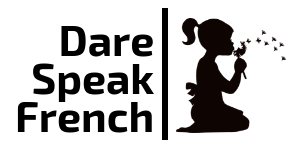sh…ch…tch…
Here, for once, the French makes it simpler ![]()
There is no “tch” pronunciation in French unless there is a “t” before the “ch”, that has then to be pronounced.
Chocolat is pronounced sho-co-la like in shingle or sharp.
Tchad (the African country) is pronounced t-sha-d like in… chocolate ![]() or cheese.
or cheese.
There are extremely few words in French that start with “tch” or contain this “tch” combination. So you might as well forget it and just make an educated guess if you ever meet one.
Back to the French “ch”… il will always be pronounced “sh”
PS : For the scholars… no pun intended, we do have words where “ch” is pronounced “k”. And no one is going to make a fuss about them as most French don’t prononce them well, anyway ![]()
How many words to speak French ?
Take heart… here come good news :
According to the Dubois-Buyse scale, which lists the words of the French language according to their frequency of use, the “average French“ uses about 5,000 words to make him/herself understood.
Obviously, this average hides important distinctions:
– The daily and practical vocabulary varies from 300 to 3,000 words, depending on the environment in which one evolves;
– Active vocabulary has 800 to 1,600 words for high school students and some 3,000 words for the average adult;
– The vocabulary of “general culture” – the words whose meaning we know, but that we hardly use in everyday life – varies between 2,500 and 6,000 words for high school students, and between 20,000 to 30,000 words for scholars.
Soooooo… 300 to 3,000 not bad to survive in everyday life. I’m sure you can manage really well with 500 to 1,000. And it comes a lot faster than we think 😉
Language roots… Latin Vs. Anglo-Saxon
Decorticate… That’s What I Do
Last night, the word “decorticate” came to my mind.
I wondered a bit : “décortiquer” is the French and I was not so sure that “englishizing” it was good enough to have a real English word.
This morning, I checked : yes, it’s English but, apparently, it belongs in the medical world, with the sense of dissecting.
To decorticate – most commonly named to shell – is very often used when it comes to remove the… shell, of course, of shellfish… makes sense, right ? But also… and we’re getting closer… for the practice of removing the bark from tree trunks. In France, in Portugal (the biggest producer), the bark from a certain species of oaks is used -still used, but less used as plastic is coming stronger – to make cork…
Cork… decorticate… got it ? They are all latin-rooted from “cortex,” meaning “outer layer.”
It’s been extended in the “abstract” world to mean open or remove the outside layer/coating/envelope/shell and reveal the inside, the core.
It may not seem like a very frequent word in a mundane level of language… although it feels to me like it’s all I have been doing all my life !!!
Remove the ignorance or preconceived conceptions about things to get a little deeper, grab a better understanding… and when you understand better, you remember better too !
This is exactly what I propose in the Dare Speak French programs : decorticate the French, compare it to its English counterpart if possible, shed light and simplify. And I love it !!!
